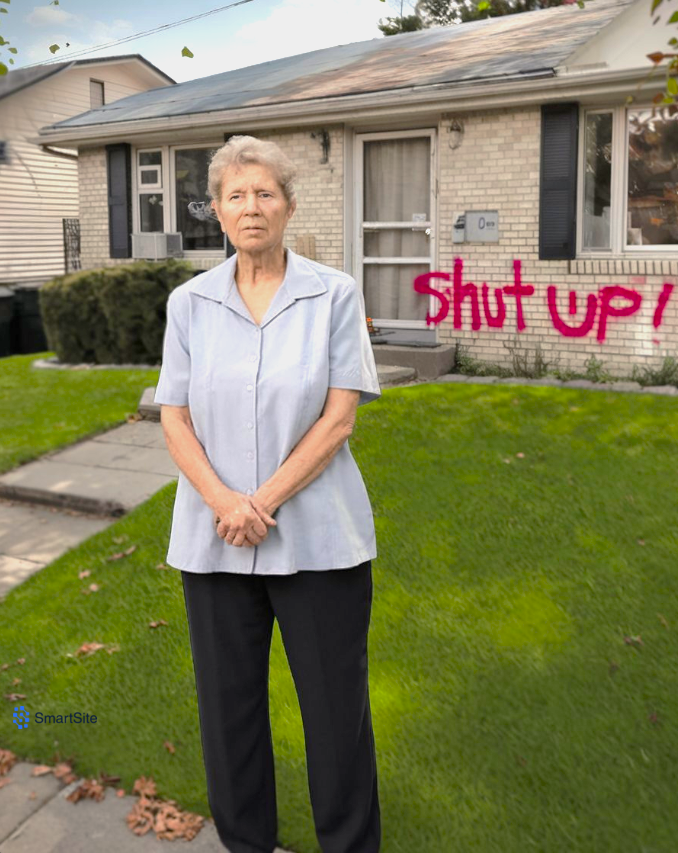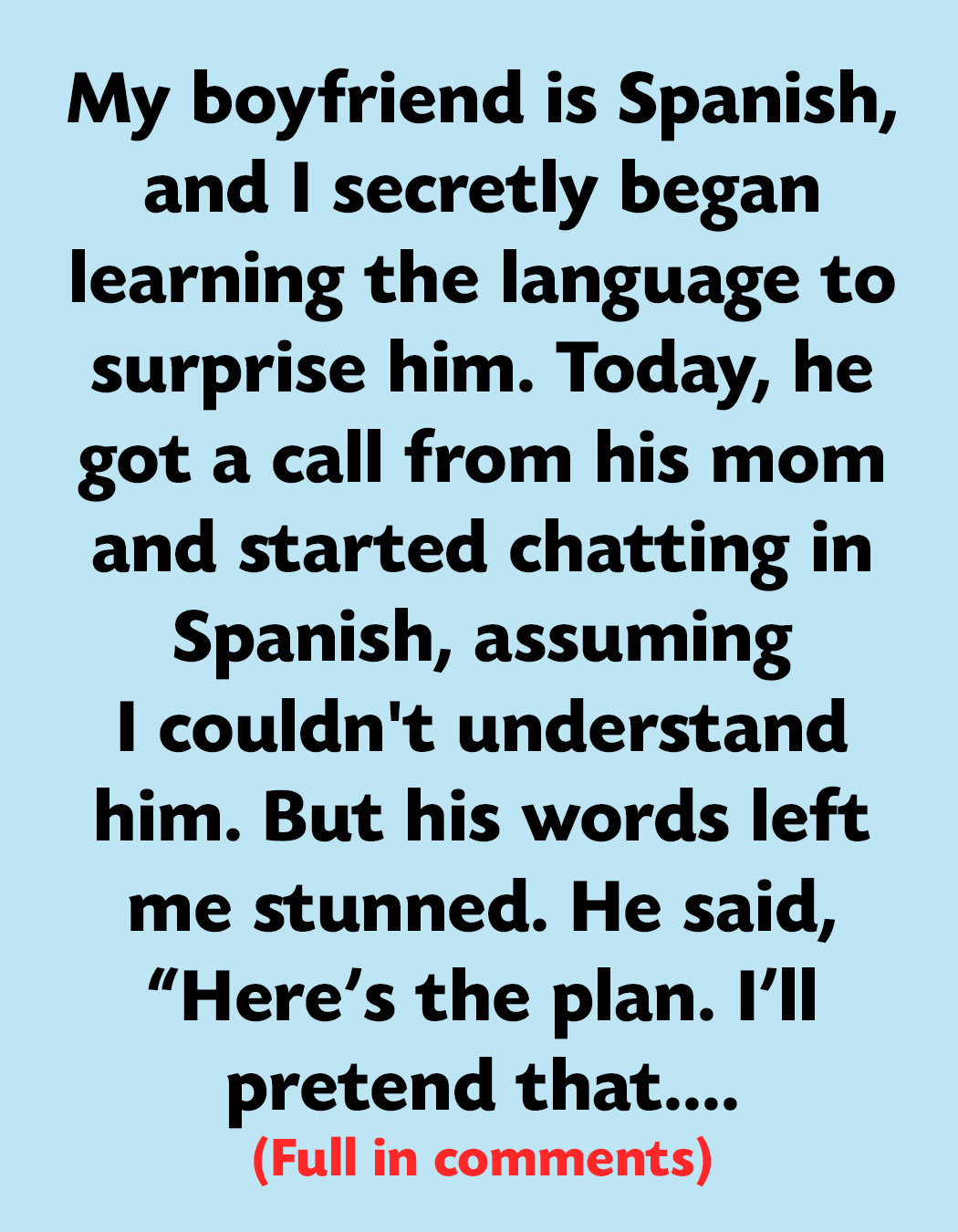The music I played on my piano was my last connection to my late husband, but cruel neighbors shattered that joy with their heartless words scrawled on my wall. When my granddaughter found out, she decided to set things right, leaving those entitled neighbors baffled.

“Oh, Jerry, did you enjoy it today, darling?” I whispered as the last notes of “Clair de Lune” filled the cozy living room. My fingers lifted from the piano keys, and I gazed at the framed photo of my late husband. His kind eyes sparkled back at me, just as they had for over fifty years.
Willie, my tabby, purred contentedly by my feet. I bent down to scratch behind his ears, feeling that familiar ache in my chest as I carefully lifted Jerry’s picture.
“I miss you so much,” I murmured. “It’s been five years, but some days… it feels like just yesterday.”
I pressed a gentle kiss to the glass. “Time for dinner, my love. I’ll play ‘Moon River’ before bed, as always.”
Placing the photo back down, I could almost hear Jerry’s warm chuckle. “You spoil me, Bessie,” he used to say, his eyes crinkling at the corners. My piano had been my constant companion since childhood, and now it was a lifeline to Jerry.
“What would I do without you?” I murmured, running my hand along its polished surface.
That night, before bed, I whispered into the darkness, “Goodnight, Jerry. I’ll see you in my dreams.”
The next morning, I was lost in Chopin’s “Nocturne” when a sharp knock on my window startled me. My fingers slipped off the keys as a red-faced man glared at me from outside. He was my new neighbor.
“Hey, lady! Quit that racket!” he shouted through the glass. “You’re keeping everyone awake with your pathetic plinking!”
I stared, taken aback. “I… I’m sorry,” I stammered, though a small voice inside me protested. It was barely 11 a.m., and none of my neighbors had ever complained before.
The man stomped away, leaving me trembling. Closing the piano lid, my sanctuary suddenly felt tainted.
The following day, I played softly with all the windows shut, hoping to avoid more conflict. But just minutes into Beethoven’s “Moonlight Sonata,” the doorbell rang aggressively.
A pinched-looking woman stood on my doorstep. “The grave’s calling, and you’re still banging on that piano?” she sneered. “Cut the noise, or I’ll report you to the HOA!”
I felt like I’d been slapped. “I closed all the windows,” I said weakly.
“Well, it’s not enough!” she snapped before turning away.
Tears welled in my eyes. “Oh, Jerry, what do I do?” I whispered. His voice echoed in my mind, steady and comforting: “Play, Bessie. Don’t let anyone stop you.” But as I sat at the piano that day, I couldn’t find the strength to press a single key.
In the days that followed, I tried everything—taping cardboard over the windows, limiting my playing time—but nothing satisfied the neighbors, whom I began calling the Grinches in my head. Moving the piano to the basement crossed my mind, but the thought of being separated from it, even by a flight of stairs, hurt too much.
One morning, while tending to my herb garden, I froze in horror. Angry red letters spelled out “SHUT UP!” across the wall.
I collapsed to my knees, weeping. “I can’t do this anymore, Jerry.”
For the first time in decades, I didn’t touch the piano.
That evening, I sat in Jerry’s armchair, clutching his photo, when the phone rang. It was my son, Jacob.
“Mom? How are you doing?” he asked gently.
“I’m fine, sweetheart,” I lied.
“Mom, you don’t sound fine. What’s going on?”
I spilled everything—the complaints, the vandalism. “I feel so lost.”
“Oh, Mom, why didn’t you tell me sooner?” Jacob said, his voice full of concern. “You’re never a burden. Your music has brought so much joy to others. Remember those Christmas parties, the recitals? You’re a treasure.”
“I’ll call Melissa,” he said. “She’s closer. We’ll figure this out together.”
A few days later, there was a knock on the door. My granddaughter, Melissa, stood there, her face lit with a warm smile.
“Surprise, Nana!” she said, hugging me tightly. But when she saw the graffiti on the wall, her smile vanished. “Nana, who did this to you?”
As I tearfully told her the story, her expression hardened. “How dare they? We’re going to fix this, I promise.”
“How?” I asked, feeling defeated.
Melissa squeezed my hands. “Those entitled brats don’t know who they’re messing with. We’ll show them.”
The next day, Melissa was unstoppable. She made calls, enlisted longtime neighbors, and even ordered supplies. By that evening, small speakers were hidden around the Grinches’ property.
When their car pulled in, Melissa grinned at me. “Showtime!”
Soft piano music drifted from the bushes. The neighbors rushed outside, confused. But soon, the music switched to barking dogs and blaring car alarms.
As they ran around, Melissa pressed another button. The air was suddenly filled with the most ridiculous fart sounds. I laughed so hard I had tears in my eyes.
“Nana, no one messes with you and gets away with it,” she said proudly.
The next morning, a work crew arrived to soundproof my piano room. “Now you can play whenever you want,” Melissa said, squeezing my hand.
As I sat at my piano, the familiar strains of “Moon River” filled the room. I closed my eyes, feeling Jerry’s presence all around me.
“That’s my girl,” I could almost hear him say. “Play on, Bessie. Play on.”
And so I did, surrounded by love—the love of my family, the love of Jerry, and the music that would never be silenced again.
The post My Neighbors Left a Message That Broke My Heart — When My Granddaughter Found Out, She Taught Them a Lesson appeared first on Timeless Life.



